This event is free of charge to attend, but registration is required. After registering your place, you will receive an email directly from Zoom with a unique link to join the event.
If you have any questions, please contact Wahid Azizi, Programme Manager of Engineering X, Royal Academy of Engineering at [email protected]
The Global Engineering Capability Review (GECR) 2025 – Second Edition, developed by the Royal Academy of Engineering and Lloyd's Register Foundation, with support from S&P Global Market Intelligence, takes a systems-based approach to assess engineering capacity and capability worldwide.
This new report introduces an updated framework for understanding engineering capacity and capability by taking a systems approach, highlighting the relationships between different capacity areas (such as academia, investment and governance), and the roles of different stakeholders (from individuals to industry to governments) that are responsible in maintaining capacity across the system. The GECR 2025 uses the newly developed Engineering Capacity Index (ECI) 2025 to compare 115 geographies, exploring how stakeholder collaboration can shape engineering outcomes and safety.
The launch will provide sample analyses from the latest report, spotlight global capacity gaps, and outline how the GECR 2025 can be used to inform policy, development and investment decisions. Attendees will also gain valuable insights into how and where engineering capacity can be strengthened to tackle global safety and sustainability challenges, such as energy transition, continuous learning, and AI.
Join us as we explore how the GECR 2025 works and how it can be used to identify where the most promising and effective interventions can be used to build capacity for a safer world.
Recording notice
Please note this event will be recorded and published on the Royal Academy of Engineering website. Your video will be off and your account will be muted throughout the entire event. Only the speakers and presentations will be visible on your screen.
Accessibility
It is very important to the Royal Academy of Engineering that our events are accessible to all. If you have any accessibility requirements, please contact the Events team at your earliest convenience so that necessary arrangements can be made. Contact details: [email protected].
Diversity monitoring form
The Academy is committed to building an inclusive economy that works for everyone. To help us achieve this, we would like to collect some basic anonymous data about the event attendees. If you would like to help, please complete the diversity monitoring form by logging into your user account on our website and completing ‘Update my D&I data’
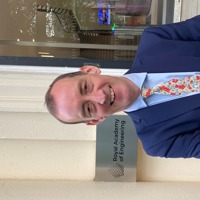
Dr Rhys Morgan
Dr Rhys Morgan is the Royal Academy of Engineering’s Director for Education and Skills and is regarded as one of the UK’s leading experts on engineering and technology education. He is responsible for the Academy’s policy and programme work in STEM education - from elementary schools through to skills in the workforce. His portfolio of work includes analysis of the UK engineering and technology skills base and the capacity and capability of the UK education system to deliver the workforce of the future. Rhys advises various UK government skills taskforces including nuclear, quantum, semiconductor, 6G telecoms and future transport. He has led major projects including Formula 1 Champion Lewis Hamilton’s Commission into improving the representation of Black people in motorsport and the Formula 1 Diversity and Inclusion charter which was published last year. Rhys is a materials engineer by background, and developed one of the first metal 3D printers in 1996.
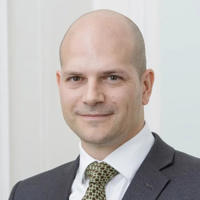
Dr Tim Slingsby
Dr Tim Slingsby is Director of Skills and Education at the Lloyd’s Register Foundation leading their substantial portfolio of programming in the UK and globally on improving safety skills. Prior to working with the Foundation, Tim was with the British Council and several other leading organisations working in the UK and on international collaboration in public engagement with science. He has also been a researcher in industry and academia following his PhD in Molecular Genetics from the University of Leicester. He is also serving as the Chair of Maritime Charities Group.
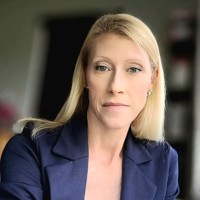
Dr Karen Campbell
Dr Campbell works with clients on their data driven thought leadership initiatives around innovation, technology and entrepreneurship. This work ranges from creating indexes, KPI and benchmarking metrics, forecasting and providing scenario analysis. She was also the point of contact for SPGMI’s partnership with the Rockefeller Foundation’s 100 Resilient Cities Initiative and continues to work with cities on benchmarking their economic resilience and developing their economic resilience strategies. She was also a member on the Zurich Alliance Measuring Flood Resilience Working Group. Just prior to joining SPGMI, Karen was a Senior Economist on the World Economic Forum’s Risk Response Network team and a Senior Research Fellow at Wharton’s Risk Management and Decision Process Center. She is a Certified Management Accountant (CMA) and has been certified in Economic Measurement by National Association of Business Economists. Her research has been published in The Journal of International Trade and Economics, Journal of Business Ethics, Development Policy Review, Natural Hazards & Earth System Sciences, Scientific Reports, as well as in books and citied in the press.
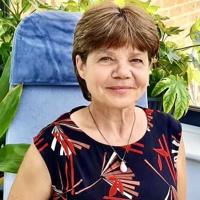
Professor Jarka Glassey FREng
Professor Jarmila (Jarka) Glassey FREng and Chair of the Skills for Safety programme board Professor of Chemical Engineering Education, Newcastle University Professor Jarmila (Jarka) Glassey is a highly accomplished engineer who has contributed very significantly to bio-chemical research and teaching, with demonstrated translation of her research into industrial application. Jarka has contributed substantially to the development of the chemical engineering faculty at Newcastle University. Jarka has also played a major role with the Institution of Chemical Engineers as the immediate past Vice President of the Learned Society, Executive officer of the Education and Accreditation Forum and the Editor-in-Chief of Education for Chemical Engineers, having led the Institution's journal to its first Impact Factor and a top three position in engineering education. Jarka has played a major international role in furthering the influence of UK biochemical engineering education.
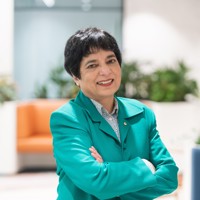
Dr Marlene Kanga AO FTSE FREng
Dr Marlene Kanga AO FTSE FREng (UK) FAA Hon.FIE (Aust) Hon. FIChemE (UK) Dr. Marlene Kanga was President of the World Federation of Engineering Organisations (WFEO) in 2017-2019, the peak body for engineering institutions internationally representing some 100 engineering institutions and more than 30 million engineers. A chemical engineer, she was the 2013 National President of Engineers Australia. She is a Fellow of the Academies of Engineering and Science in Australia, an international Fellow of the Royal Academy of Engineering and a Foreign Fellow of the ASEAN Academy of Engineering and Technology. She is an Officer of the Order of Australia, a national honor, “For distinguished service to engineering, particularly as a global leader and role model to women, to professional organisations, and to business. “ During her term as WFEO President, Dr Kanga led the initiative for the member states at UNESCO to declare 4th March, the founding Day of WFEO, as World Engineering Day, in November 2019.

Dr Adam Cooper
Dr Adam C Cooper is an Associate Professor in Engineering Policy. His background is in applied interdisciplinary social science rooted in 10 years direct experience of the UK Civil Service. His research focus is on 'engineering policy': both engineering for policy (the use of technical advice for - mainly energy - policy), and policy for engineering, which includes developing new field methods for socio-technical research, all with a view to making engineering better at making the world better. Adam has been at UCL STEaPP since it's birth in 2013. Prior to joining UCL he was the Head of Social Science Engagement at the UK government Department of Energy and Climate Change from 2011. Adam holds a PhD in Cognitive Neuropsychology from Birmingham, an MSc in Cognitive Science and Natural Language from Edinburgh and a BSc in Psychology from Stirling.
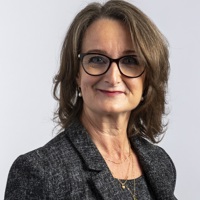
Professor Denise Bower
Denise is a senior executive at global engineering, management, and development consultancy Mott MacDonald, with significant business and academic experience in major infrastructure projects, and a recognised expert in this area. Mott MacDonald has almost 20,000 people worldwide advising on, designing, and delivering projects across transport, water, energy, and the built environment. She is responsible for Mott MacDonald’s industry profile and positioning, corporate reputation, client, and partner relationships and thought leadership, with a particular focus on Mott MacDonald’s commitments on global issues Denise is well known in industry for her past roles as the Executive Director of the Major Projects Association, a former member of the UK Infrastructure Client Group and as a Professor in the School of Civil Engineering at the University of Leeds. She is a Fellow of the Institution of Civil Engineers and appointed to the Order of the British Empire for her services to the Engineering and Construction Industries.
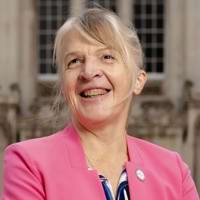
Yvonne Baker OBE
Following a degree in chemical engineering from the University of Birmingham, UK, Yvonne worked as an engineer in manufacturing before moving into management consultancy and studying for an MBA. In 2002, Yvonne moved into the science, technology, engineering and mathematics (STEM) sector to establish the Science and Engineering (now STEM) Ambassadors volunteering programme. She joined STEM Learning as Chief Executive in 2010, significantly growing the organisation’s reach and impact to become the UK’s largest provider of STEM support. An Engineering Council Trustee from 2010 to 2016, Yvonne also previously served as Co-Chair of the Institution of Engineering and Technology's Education and Skills Panel. Yvonne was privileged to give the Engineering and Physical Sciences (EPS) Distinguished Lecture at the University of Birmingham in 2020 and was awarded the OBE (Officer of the Most Excellent Order of the British Empire) in the late Queen's New Year 2022 Honours List for services to STEM education.
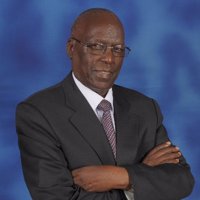
Eng. Erastus Mwongera
Eng. Erastus Mwongera is a registered consulting engineer with the Board and a Fellow of the Institution of Engineers of Kenya. He holds a Bachelor’s degree (Civil Engineering) from the University of Swansea, United Kingdom
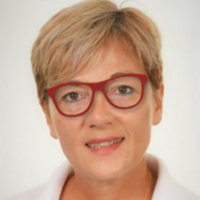
Associate Professor Karin Wolff
Associate Professor Karin Wolff has been in engineering education as an academic lecturer, researcher and mentor since 2008. Her doctoral research (University of Cape Town) looked at the relationship between mathematics, physics and logic in complex engineering problem solving in industry. She draws primarily on sociology to analyse and design knowledge- and knower-building practices that enable the holistic development of engineering graduates. This work has been extended into academic staff development across higher education institutions in South Africa as part of a number of internationally collaborative projects. She is the Teaching & Learning Advisor in the Faculty of Engineering, Stellenbosch University, and current president of the South African Society for Engineering Education (www.sasee.org.za). She is a member of the core team of the Royal Academy of Engineering-funded Innovative Engineering Curriculum project, as well as the Engineering Education Research Network (Africa).
